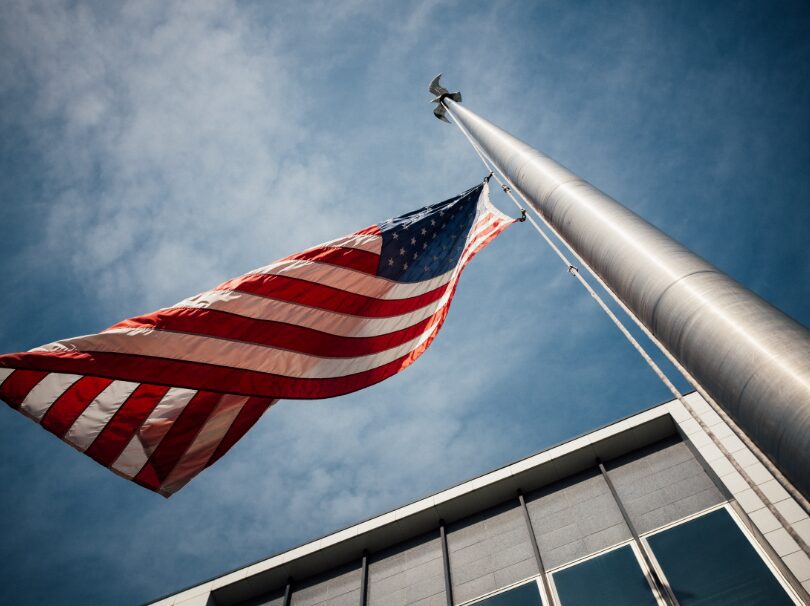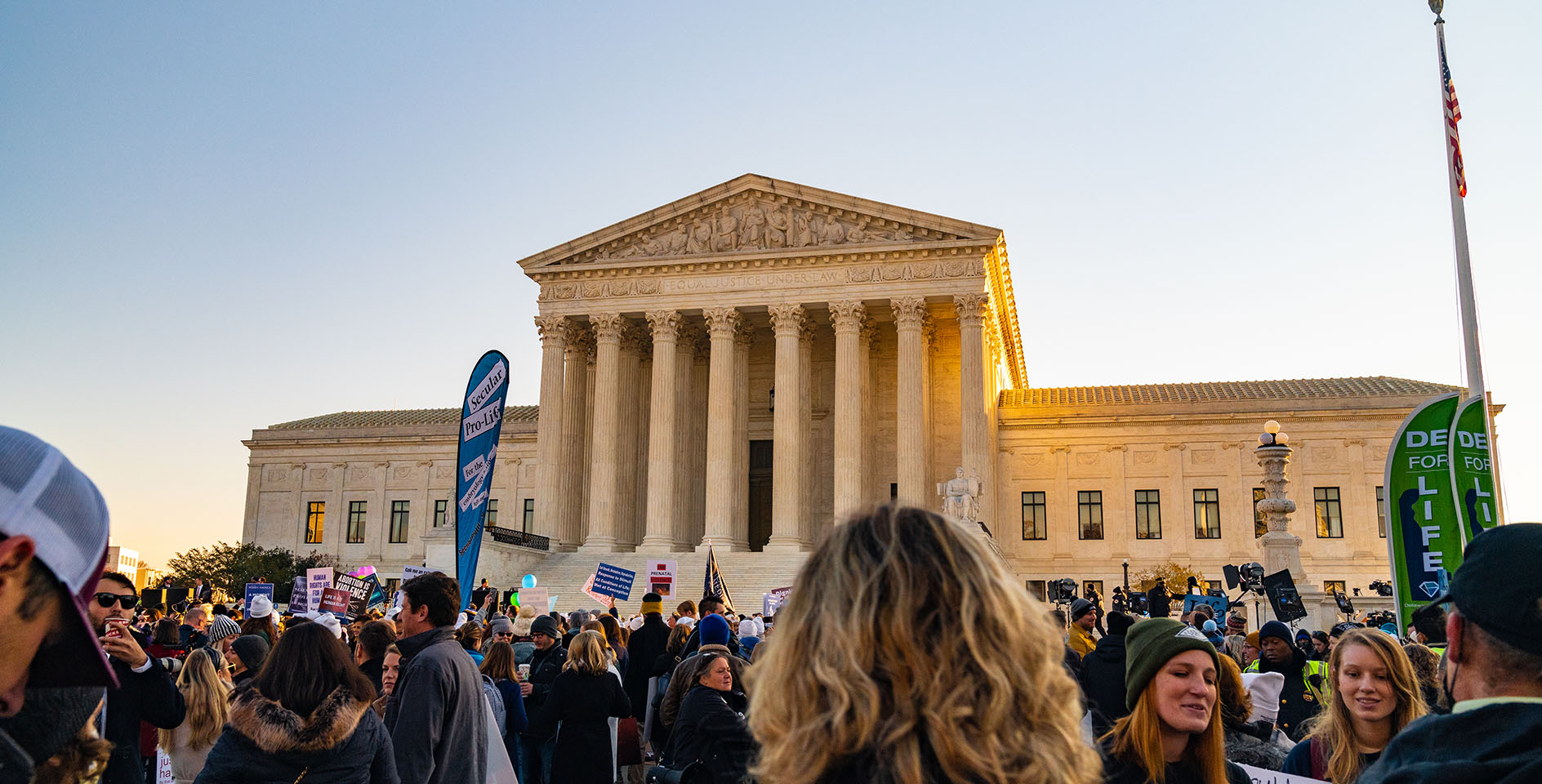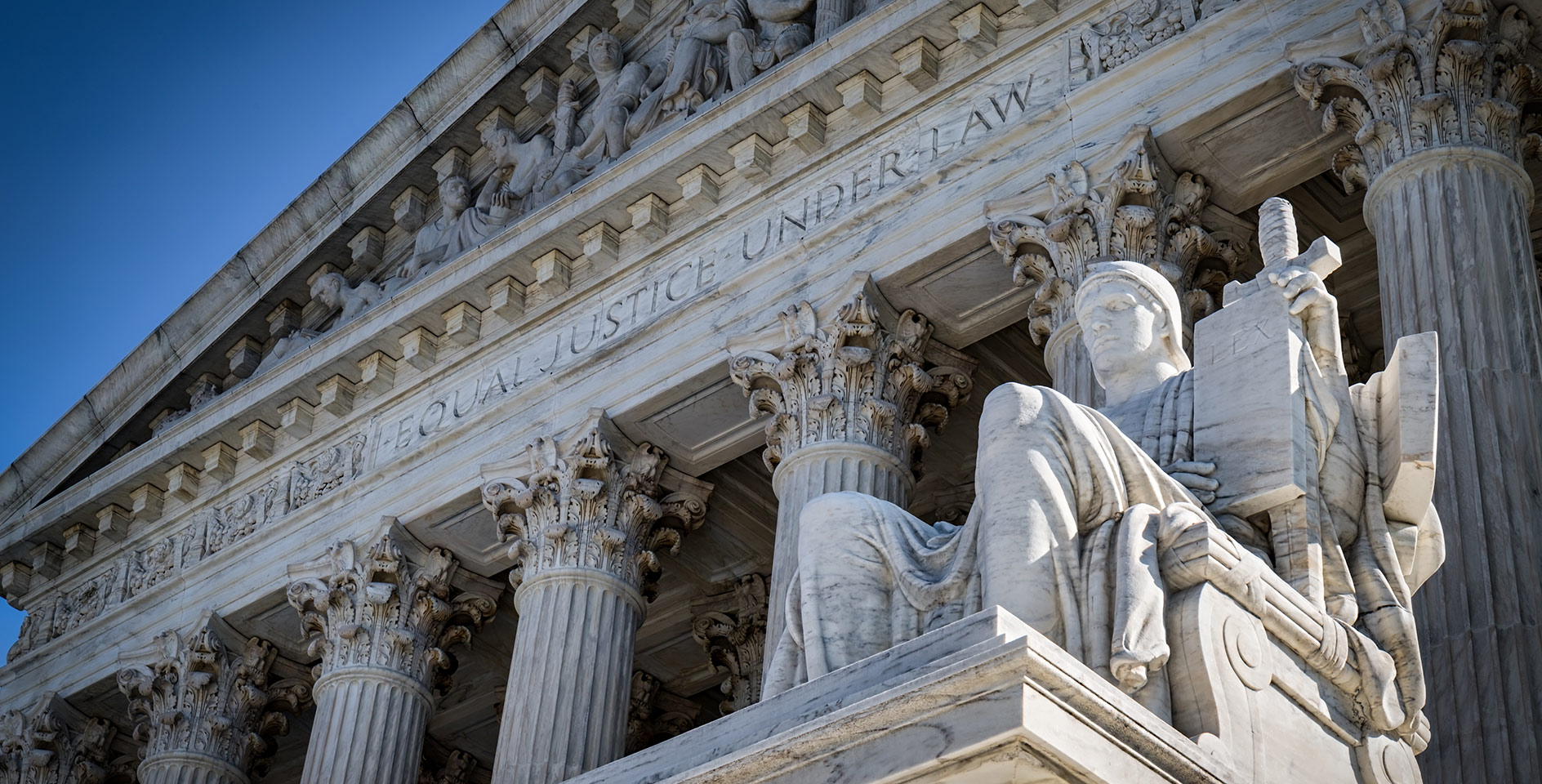
WASHINGTON (BP) — The fate of religious freedom for Americans, especially business owners, could hang in the balance when the U.S. Supreme Court convenes March 25.
The justices will hear oral arguments that day in challenges by two family owned corporations to the Obama administration's abortion/contraception mandate, which requires employers to provide abortion-causing drugs for their workers. Hobby Lobby, a nationwide retail chain based in Oklahoma City, and Conestoga Wood Specialties, a Pennsylvania business, contend the federal regulation violates their owners' consciences and a 1993 law protecting religious liberty.
Religious freedom advocates predict the Supreme Court's decision will be far-reaching.
The high court's opinion “will determine the next 100 years of church/state jurisprudence,” said Russell D. Moore, president of the Southern Baptist Ethics & Religious Liberty Commission.
Joshua Hawley, a lawyer assisting Hobby Lobby, described it as “a landmark case.”
“It has major significance for religious liberty” and “for what constitutional rights business owners can claim,” said Hawley, a member of the Becket Fund for Religious Liberty's legal team and an associate professor at the University of Missouri School of Law.
Matt Bowman, senior legal counsel for the Alliance Defending Freedom, explained to Baptist Press the consequences for not only the Green family, the evangelicals who own Hobby Lobby, and the Hahns, the pro-life Mennonite family that owns Conestoga Wood, but other people who seek to exercise their religious beliefs.
“If the Hahn and Green families lose, the door would be open to allow the government to force people of faith to pay massive fines threatening jobs and health coverage just simply because they are choosing not to violate their faith and conscience,” Bowman told BP in an email interview.
“If the Hahn and Green families win, it will protect religious liberty as promised in the Constitution and American law, and people of faith will not be subject to massive fines just because they don't want to help destroy human life.”
The arguments at the Supreme Court will arrive after more than two and a half years of protests by pro-life and religious freedom advocates. In implementing the 2010 health-care reform law, the Department of Health and Human Services announced in August 2011 a proposed rule requiring employers to pay for coverage of contraceptives, including ones that can induce abortions. Objections to the regulation failed to produce either a retraction from HHS or adequate conscience protections requested by religious liberty proponents.
More than 300 parties — some nonprofit organizations and some for-profit corporations — have combined to file 94 lawsuits against HHS in the meantime, according to the Becket Fund. The consolidated case the justices will hear March 25 involves for-profit businesses. The nonprofit cases have yet to work their way up to the high court.
While some conscientious objectors to the HHS rule oppose underwriting all contraceptives, Hobby Lobby and Conestoga Wood protest paying only for abortion-causing drugs. Federal appeals courts reached different conclusions last year in the lawsuits. The Third Circuit Court of Appeals in Philadelphia ruled for the federal government in Conestoga Wood's challenge, while the 10th Circuit Court in Denver sided with Hobby Lobby.
The principle involved in the case is rooted in theology and America's founding, Moore said.
“The government doesn't grant us religious liberty; God does,” he told Baptist Press in a written statement. “The government is to recognize that God-given natural right for all persons to freely exercise their religious convictions.
“What's at stake is the heritage our forefathers bought with their blood,” Moore said. “More than that, what's at stake is the truth that God alone, and not Caesar, is Lord of the conscience.”
A major question the Supreme Court will consider in the case is whether owners of for-profit companies can exercise their religion in the conduct of their businesses. A divided three-judge panel of the Third Circuit Court ruled that for-profit, secular organizations “cannot engage in religious exercise.” The 10th Circuit in Denver rejected the Obama administration's argument that protections under the 1993 Religious Freedom Restoration Act do not extend to for-profit companies. It ruled corporations “can be 'persons' exercising religion for purposes” of RFRA.
The U.S. Constitution and RFRA protect people of faith in their business practices, according to the Alliance Defending Freedom and the Becket Fund.
The federal government “asserts that when people of faith try to earn a living in business, they lose freedom to act consistent with their faith,” said Bowman, whose organization, ADF, represents Conestoga Wood. “But Americans do not give up their freedoms when they open a family business, and no American family should be forced to choose between following their faith and submitting to unlawful and unnecessary government mandates.”
Hawley said in an interview with The Pathway, newsjournal of the Missouri Baptist Convention: “You don't lose your free exercise rights when you open a business in this country. That's never been the law. That's not what the Constitution says. Business owners have a right to run their businesses in accord with their religious convictions just like everybody else.”
The Religious Freedom Restoration Act — which requires the government to have a compelling interest and to use narrow means to burden a person's religious exercise — also guards the rights of for-profit owners, Hawley said.
The Becket Fund's argument “is that the government does not have a compelling interest in forcing business owners to provide these abortion-inducing drugs,” he said. “They haven't pursued their interests in the appropriate way. And, therefore, since it violates the Greens' religious faith they can't make it stick under this law.”
The SBC's Ethics & Religious Liberty Commission signed on to a friend-of-the-court brief filed by the Christian Legal Society in support of Hobby Lobby and Conestoga Wood. Also among the 59 briefs supporting Hobby Lobby and/or Conestoga Wood, according to the Becket Fund, was one signed on to by Southeastern Baptist Theological Seminary; its president, Daniel Akin; Southern Baptist mega-church pastor and author Rick Warren; Southern Baptist professors; and at least one other Southern Baptist pastor.
Also filing briefs for the businesses were congressional members from both political parties, 20 states, women's organizations, constitutional law scholars, Roman Catholic theologians, the National Religious Broadcasters, Council for Christian Colleges and Universities, National Association of Evangelicals, U.S. Conference of Catholic Bishops, Democrats for Life and Christian Medical Association.
The 23 briefs filed in opposition to the two businesses, according to the Becket Fund, included more than 100 Democratic members of Congress, 16 states, the ACLU and Freedom From Religion Foundation.
The HHS regulation requires coverage of such drugs as Plan B and other “morning-after” pills that possess a post-fertilization mechanism that can cause an abortion by preventing implantation of tiny embryos. The rule also covers “ella,” which — in a fashion similar to the abortion drug RU 486 — can act even after implantation to end the life of the child.
HHS provided an exemption to the rule for churches and their auxiliaries but did not extend it to non-church-related, nonprofit organizations and for-profit companies that object. The administration also offered an accommodation for non-church-related religious organizations, but critics said it was inadequate because it still forces such groups to provide access to the drugs through third parties.
Hobby Lobby's Green family has said it will not comply with the mandate if it loses in court. The arts and crafts retail chain of more than 600 stores could face fines totaling $1.3 million a day. Hobby Lobby seeks to honor God “by operating the company in a manner consistent with Biblical principles,” according to its statement of purpose. Its stores are closed on Sundays.
The Hahn family, which owns Conestoga Wood, has been living under the mandate since its group health plan was renewed in January 2013. Refusal to abide by the mandate could cost the family an estimated $95,000 a day. Conestoga Wood is a wholesale manufacturer of kitchen cabinet parts.
The 10th Circuit case is Sebelius v. Hobby Lobby, while the Third Circuit case is Conestoga Wood v. Sebelius. Kathleen Sebelius is the HHS secretary.
The high court is expected to issue a decision before the end of its term in late June or early July.










